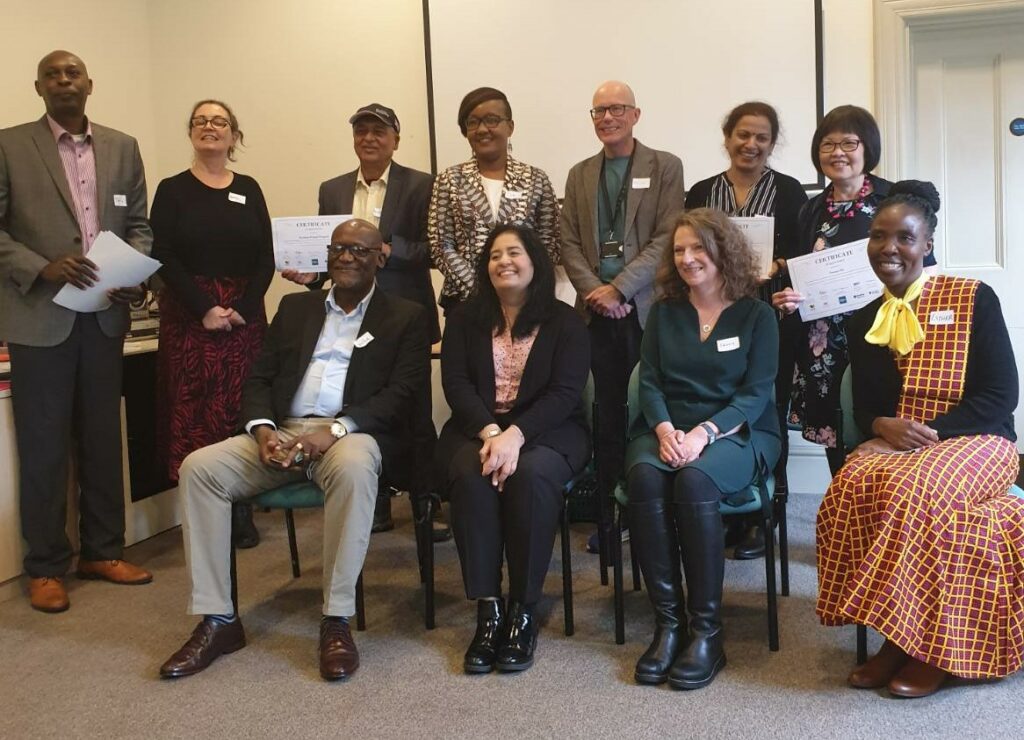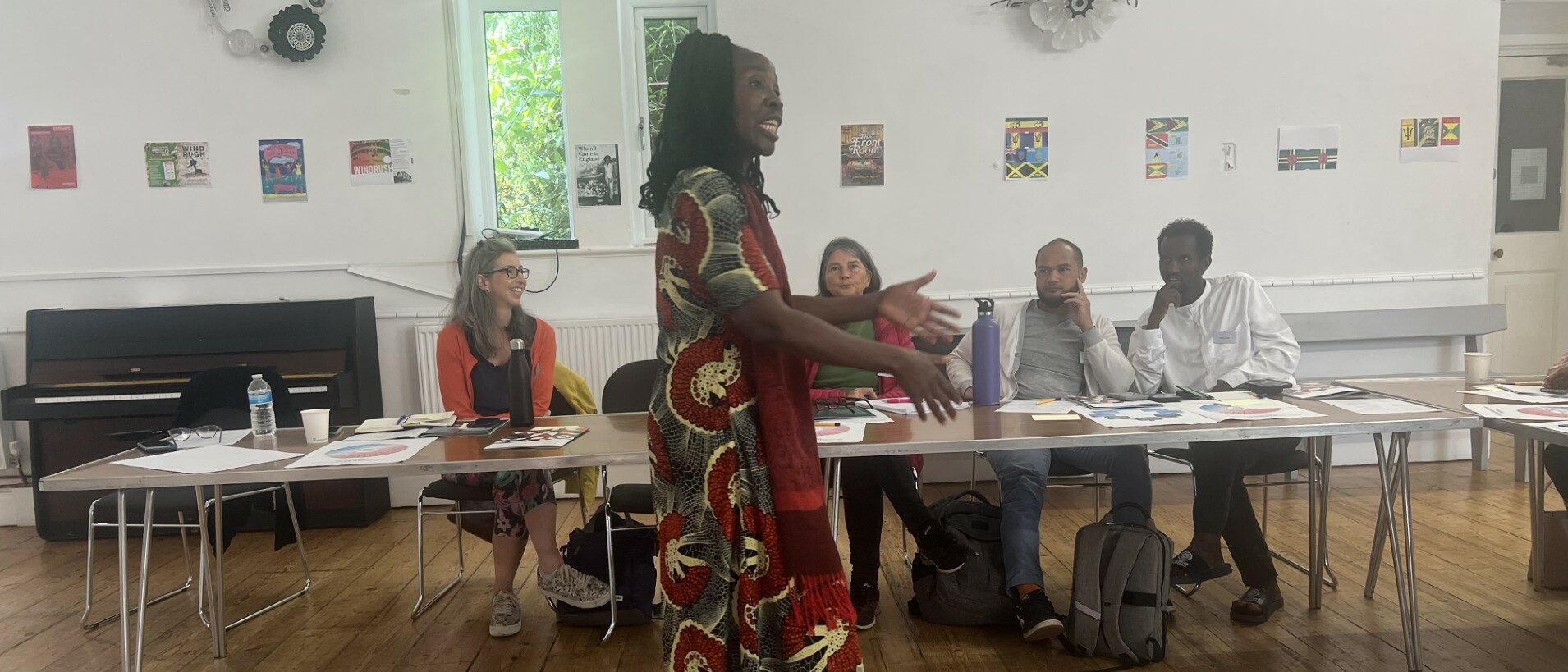Dr Esther Oenga is Community Participatory Action Research (CPAR) Fellow at the University of Reading and specialises in participatory, community-led research which empowers communities. Esther has previously facilitated a partnership tackling health inequalities in Reading and now leads a project exploring the impact of the cost of living crisis in South East England. In this profile for National Careers Week, Esther reflects on the challenges and rewards of her role.
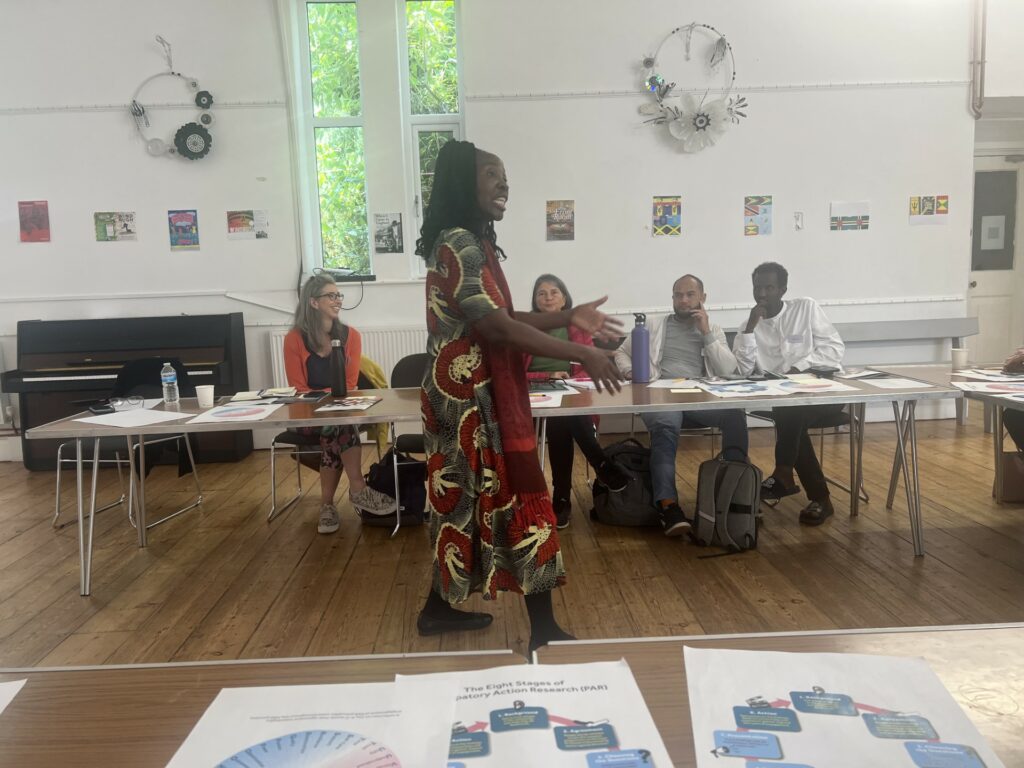
Tell us about your role
Community Participatory Action Research (CPAR) 2 is a collaborative programme funded by NHS England, focusing on the impact of the cost of living crisis on local communities and the implications it will have for health and social care. Partners include the Scottish Community Development Centre (SCDC) and the Institute for Voluntary Action Research (IVAR). This project builds on previous community research into the impact of Covid and the inequalities facing minority ethnic communities in accessing healthcare.
My role in CPAR 2 is designing and delivering training for over 30 community researchers from different organisations in South East England. Community researchers work with their communities to investigate the issues that matter most to them. The training uses the 8-stage method developed by the University of Reading and partners in Participatory Action Research: A Toolkit. We have peer mentors with previous experience of community research working on the project, and I also mentor them.
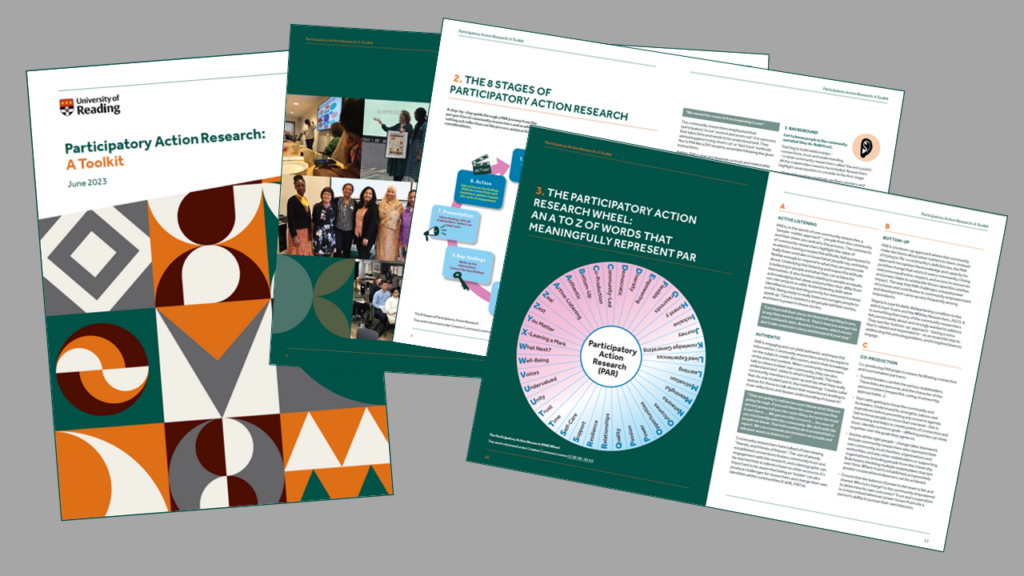
I work with all the different stakeholders involved in the project, supporting existing relationships, and developing new research partnerships. Leading on the CPAR programme has enabled the University to build stronger relationships in Berkshire and South East England. New partnerships have been achieved with diverse communities, councils, charities, businesses and other universities.
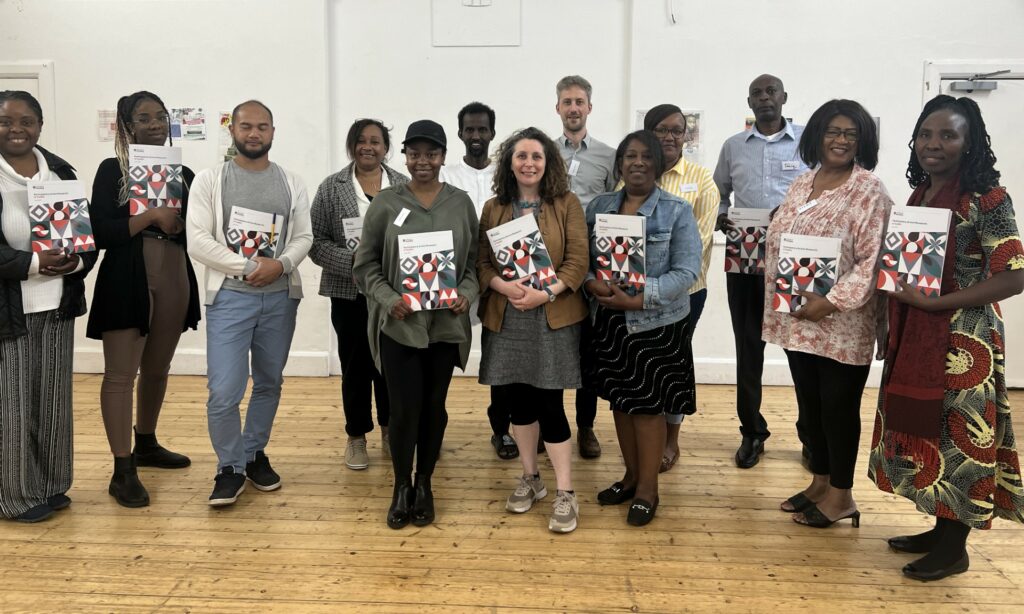
Describe a typical working day for you
My working days vary but what is definite is that my day starts before 9am and ends after 5pm. There are training days that go on until 8pm. My day starts with responding to emails from the community researchers, research leads and other stakeholders and reviewing any meetings planned for that day and any actions expected from them.
Communicating with all the different people involved in the project takes a lot of time. To accommodate the community researchers’ needs, there will often be communications back and forth to arrange suitable times for training. I may have one-to-one meetings with researchers who need additional support or clarification. I ensure that messages from other stakeholders and actions from meetings are communicated to the researchers. I make sure that all the resources are up to date and I then facilitate training for one or two groups.
I also attend other meetings within my department of Geography and Environmental Science, and keep the University’s PAR team, peer mentors and my line manager up to date.
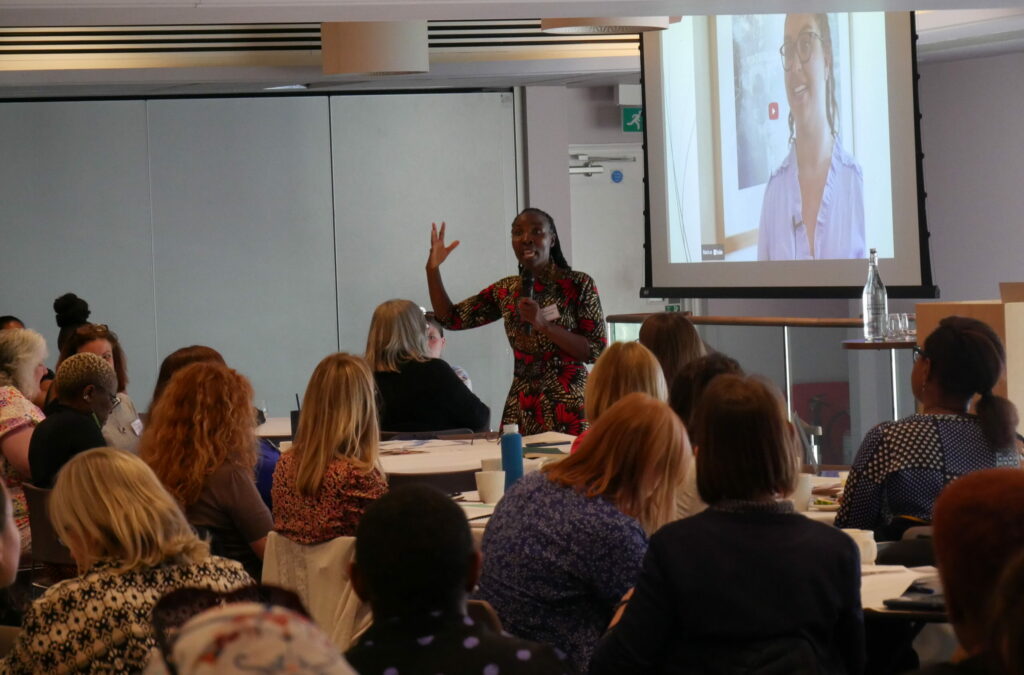
What is the most challenging part of your job?
Being flexible enough to meet the needs of the community researchers, ensuring that the researchers attend the training they need to do the research and ensuring that they remain motivated throughout the process of their research project.
Flexibility is crucial to the participatory approach, as it ensures that the research is accessible to community participants. For example, one group’s training sessions are delivered from 6pm to 8pm to accommodate all.
However, the most challenging part of my job is acting on the findings of community-led research. CPAR is about social change, finding solutions and ensuring that learning informs delivery of services by providers. If this is not done, it raises questions such as what is the essence of doing research if change cannot be achieved? Not acting on the learning from research may end up in lack of trust from communities. Relationships that have been built over a long time can be broken and the impact is long lasting.
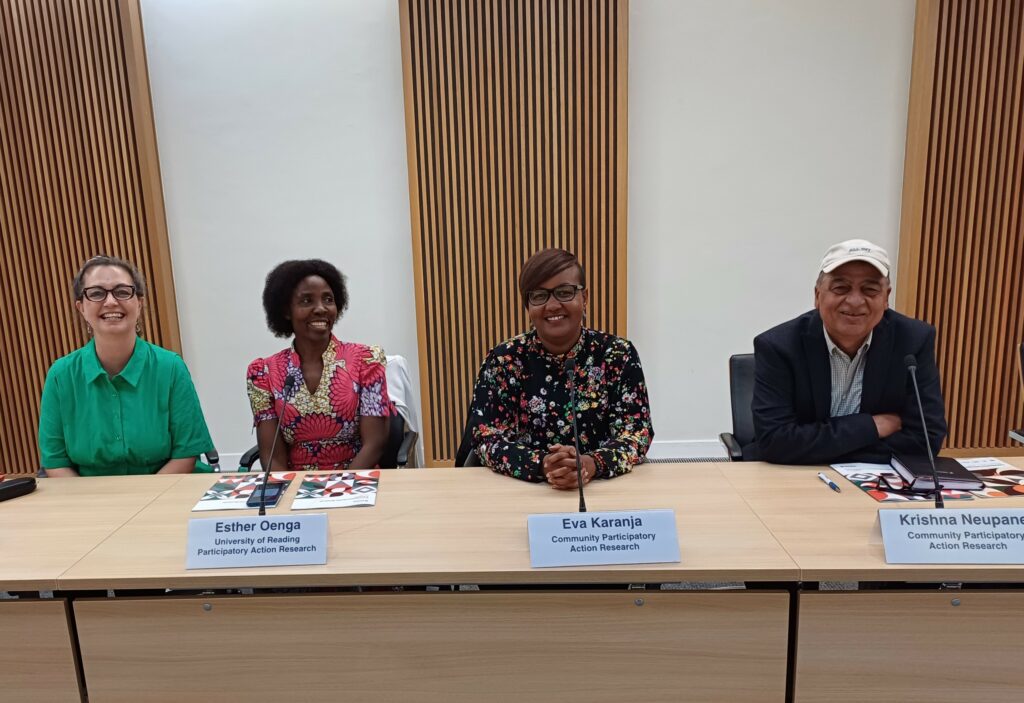
What is the best part of your job?
CPAR is about giving voice to the voiceless. At the end of research projects, an amazing showcase event is organised. Researchers get the opportunity to present their findings and get to hear from the other researchers. Community members are given the opportunity to attend as a way of giving feedback to the community. Researchers are recognised for the work they have done, which is rewarding. The best part of my job is when all the partners work together to translate the findings and recommendations into actions. When this happens, the service providers have not only listened, but they have acted. The community has been recognised and has not been taken for granted. Trust is built with the community as an equal partner.
